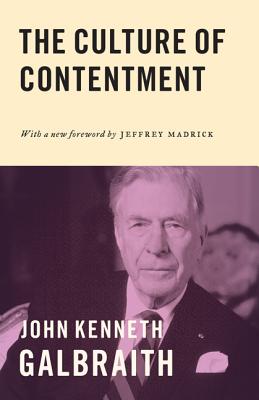

 Princeton University Press
Princeton University Press
The Culture of Contentment


Key Metrics
- John Kenneth Galbraith
- Princeton University Press
- Paperback
- 9780691171654
- 8.4 X 5.4 X 0.7 inches
- 0.35 pounds
- Business & Economics > Economics - General
- English
 Secure Transaction
Secure TransactionBook Description
The world has become increasingly separated into the haves and have-nots. In The Culture of Contentment, renowned economist John Kenneth Galbraith shows how a contented class--not the privileged few but the socially and economically advantaged majority--defend their comfortable status at a cost. Middle-class voting against regulation and increased taxation that would remedy pressing social ills has created a culture of immediate gratification, leading to complacency and hampering long-term progress. Only economic disaster, military action, or the eruption of an angry underclass seem capable of changing the status quo. A groundbreaking critique, The Culture of Contentment shows how the complacent majority captures the political process and determines economic policy.
Videos
No Videos
Community reviews
Write a ReviewNo Community reviews